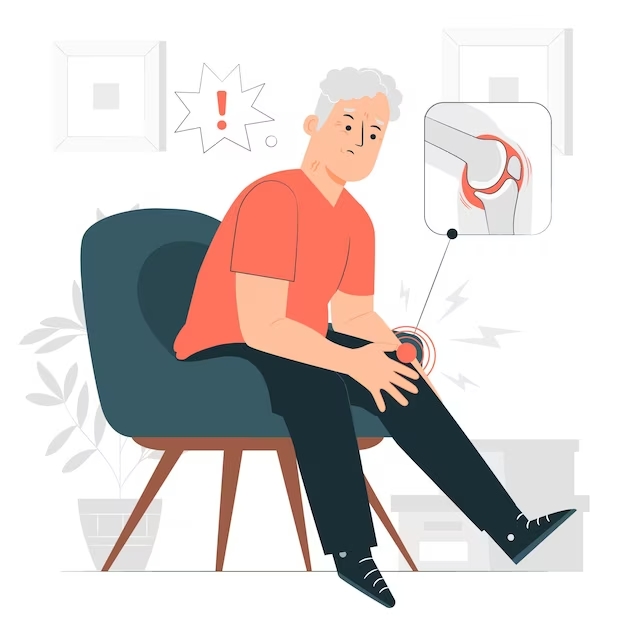We will all suffer pain at some point in our lives, whether it is bodily or emotional discomfort brought on by a disease, an injury, or a traumatic experience. Pain does have a good, “protective,” purpose, even if most of us would prefer to avoid it. For instance, when you feel pain, your brain sends you a signal to cease doing whatever it is that is making you feel pain, protecting your body from additional damage.
However, pain is not intended to last for a long period. Acute pain, which is the type of pain that most of us encounter, is defined as pain that normally lasts less than 3 to 6 months. For some people, discomfort can persist longer than the typical 3 to 6 months or go gone and come back, both of which are detrimental to one’s well-being. This is referred to as persistent or chronic pain. Simply said, chronic or persistent pain is discomfort that lasts longer than it should. Low health-related quality of life is caused by chronic pain, which is frequently accompanied by other medical problems like depression and anxiety. Talk to an expert psychologist and take Online Counselling if you are facing mental health issues.
Chronic pain causes both physical and psychological stress. It is known that long-term stress alters the concentrations of neurochemicals and stress hormones in your brain and nervous system, which can have an impact on your mood, thinking, and behavior. Some people may experience depression if the equilibrium of these chemicals in their bodies is upset.
These illnesses’ persistent pain can affect your daily life in a number of different ways. Your capacity to function at home and at work may be impacted. It could be challenging for you to engage in hobbies and social activities, which might lower your self-esteem. People with chronic pain frequently have sleep problems, exhaustion, difficulty concentrating, poor appetite, and mood swings. These detrimental alterations to your way of life can exacerbate your discomfort and lower your general disposition; the stress of dealing with this can lead to sadness and anxiety.
CONDITIONS THAT CAUSE CHRONIC PAIN FREQUENTLY AND HOW THEY AFFECT MENTAL HEALTH
-
Arthritis:
Arthritis is an inflammatory condition that affects one or more of your joints and can be quite painful. Arthritis comes in more than a hundred different varieties. The most typical varieties include:
-
Osteoarthritis (OA): Over time, the bones in the joint’s protecting cartilage may rub against one another, creating excruciating pain and making movement more difficult.
-
Rheumatoid arthritis (RA): the body’s immune system attacks joints and organs, causing chronic inflammation that wears down joints and causes lasting damage.
-
Psoriatic arthritis (PsA) is a condition in which the immune system attacks the body, resulting in swelling and discomfort in the skin, joints, and connective tissues.
The most prevalent kind of arthritis, osteoarthritis, often affects the hands, knees, hips, and spine. However, osteoarthritis can damage any joint, leading to joint deformity and long-term impairment. People with arthritis have higher rates of specific mood and anxiety disorders than people without arthritis.
Osteoarthritis can make it harder for a person to perform daily tasks and sometimes even prevent them from engaging in social activities because of pain, movement restrictions, and joint degradation. Mental health issues like depression can emerge at any age because of isolation from not being able to engage in social activities and dissatisfaction with not being able to satisfy life’s obligations.
-
Fibromyalgia (FM)
Fibromyalgia (FM) is a chronic, multisymptomatic condition in which the brain and spinal cord react differently to pain signals. If you have FM, touch or movement that does not hurt other people may hurt you, or something that hurts a person without FM just mildly may hurt you more severely. FM is linked to discomfort, generalized weariness, and extensive pain in the muscles and bones. Around 2-3% of the general population suffers from FM, and more than 90% of patients are women. Pain is perhaps the most significant symptom of FM.
FM. often affects your mental health, social abilities, level of energy, and general health. It was shown that women with FM appeared to be at an approximately five-times higher risk of developing anxiety disorders than women in the general population, particularly obsessive-compulsive disorder.
-
Multiple Sclerosis:
Multiple sclerosis (MS) is a neurological disorder that impairs the body’s ability to communicate with the brain. It affects 1 in 1,000 people in Western countries and is the most prevalent chronic debilitating central nervous system (CNS) condition among young adults.
Depression, anxiety, and pseudo-bulbar effect are the three main issues with mental health when living with MS. Your social support system and family structure may be disrupted if you have MS and depression. Additionally, depression has a negative impact on functional status, leading to longer absences from work. Major Depressive Disorder (MDD) is more common in MS patients than in MS-free individuals over the course of a year.
-
Back/Neck Pain:
Most people are familiar with a moderate soreness in their back or neck that can be brought on by muscle tension, sleeping incorrectly, lifting heavy objects, trauma, or stress. Even though it is uncommon, back and neck, pain may be a sign of a dangerous underlying medical condition, such as cancer or meningitis.
Some signs of this kind of pain may point to a spinal cord or nerve root that is in danger of degeneration. Radiating pain, tingling, numbness, or weakness in the shoulders, arm, or hands can be among these symptoms. Other bothersome symptoms include fever or chills, neurological issues with balance, walking, coordination, or bladder and bowel control.
It is always important to speak with your doctor about any symptoms you may be having as these signals are also frequently associated with other serious health concerns, such as heart attacks in women.
People with back/neck pain had higher rates of mental health disorders than people without.
Backaches and headaches were associated with a higher risk of serious depression in a study of persons with chronic pain and depression. Additionally, it was discovered that compared to people without pain problems, individuals who had chronic pain experienced longer-lasting depression symptoms.
HOW CAN ONLINE COUNSELLING HELP WITH CHRONIC PAIN?
It is true that in cases of chronic pain online psychotherapy is supportive. The primary treatment is provided by doctors who deal with these illnesses and helps in managing pain and slowing down the progression of symptoms. Online Psychiatric Consultation at TalktoAngel can help patients suffering from chronic illnesses by helping them manage the psychological symptoms that started to come due to the illnesses. As movement can be difficult with chronic pain, Online Counselling is beneficial as they can take that from the comfort of their homes. Online Counselling is more manageable and easily accessible through any device. The patients can take video/chat/audio sessions as per their convenience.




